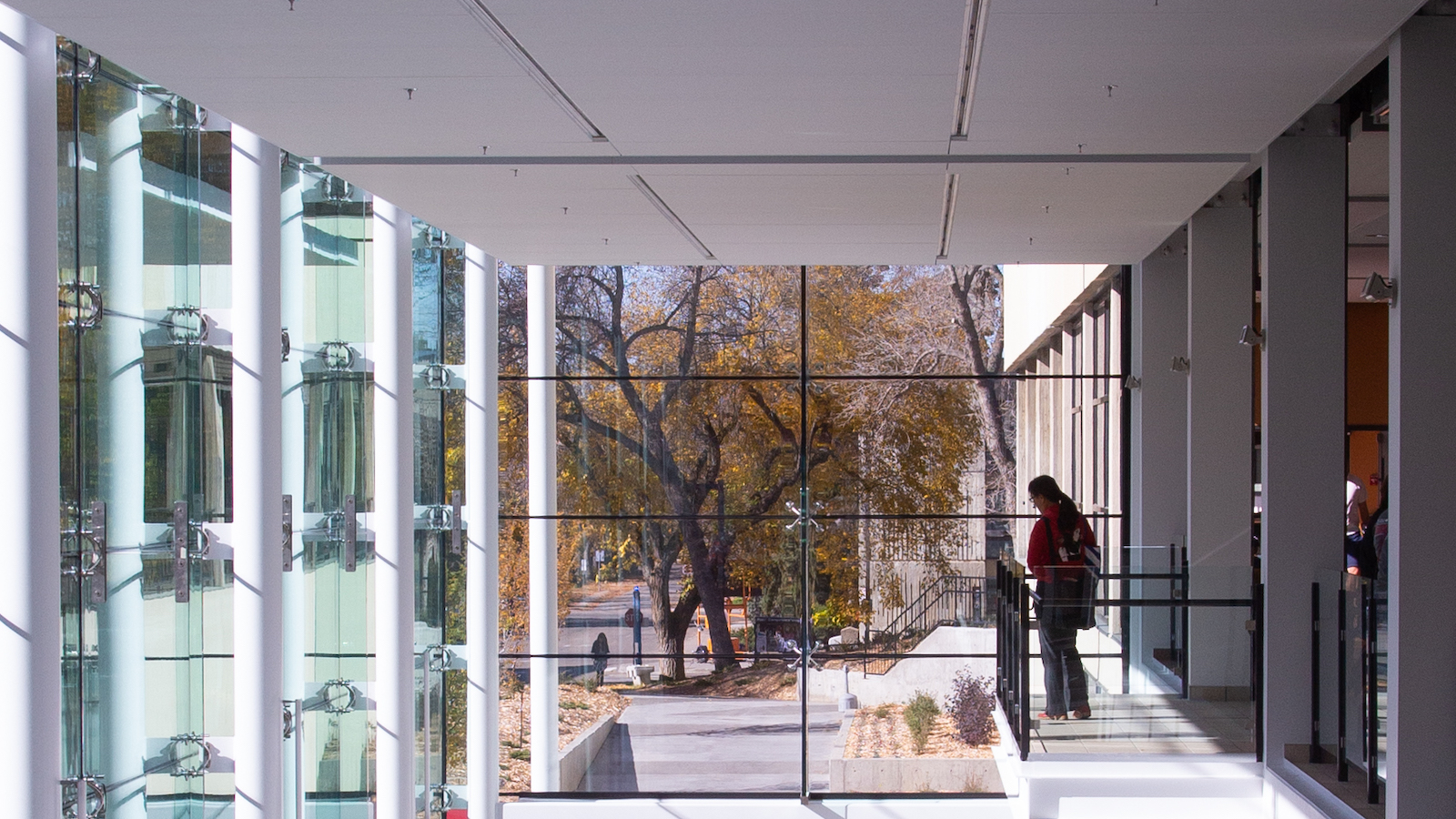Updated: September 10, 2021
Scientists and public health experts have made it clear: getting vaccinated for COVID-19 is the most effective way to help foster a safe community that can move beyond the global pandemic. Many members of our community are stepping up to take their shot and get fully vaccinated, but what if you or someone you know is nervous about needles or side effects? What if you've already had COVID-19?
The Quad talked to Dr. Chris Smith, one of our University Health Centre physicians, about vaccinations. In addition to the basics, he also shares how to support those individuals who are feeling unsure about booking their vaccination appointment:
The advantage of second doses.
Two weeks after getting a first dose, the risk of getting serious disease from COVID-19 is reduced by about 80%. After two doses, the risk is reduced by somewhere around 95%. And while the vaccines aren't perfect at protecting someone against any infection from COVID, they're very, very good at preventing serious disease from COVID. Given that vaccination can prevent someone from winding up hospitalized or needing oxygen or needing intensive care or dying, that’s a big win for the vaccine.
The second dose is important because we know that the first dose alone doesn't achieve the same degree of protection. So if you don’t get the second dose, you’re robbing yourself of some of the benefits.
Helping those who may be hesitant to get their shots.
First I try to understand why they’re hesitant. With anything, it helps if people feel they’re being heard and listened to. There are many reasons people may be hesitant, and having questions or concerns is quite normal—perhaps even encouraged—with anything in medicine.
Once I understand their hesitancy, I try to address that. I always harken back to the best evidence available at the time of the conversation. I also try to make sure they feel comfortable coming back to my office at any time.
Offering advice to anyone nervous about the newness of the COVID-19.
Even though these are new vaccines, using new technology, the ability to create these vaccines has been years in the making. Although they came into existence quickly, no corners were cut—all of the appropriate testing was done.
Understanding potential side-effects.
At this point, we know the side effects well by now. That’s why I explain to patients exactly what the side effects are, and that they usually appear within 24 hours and dissipate within 72 hours.
As for the possible long term effects of vaccine reaction, this refers to something that happens generally within two months— not years later. It can be reassuring to know that a lot of two-month testing periods have elapsed by now.
The question of natural and/or herd immunity.
Natural immunity basically means taking your chances with COVID-19. I don’t recommend doing this because there are severe potential consequences including death, hospitalization, and effects of long-term COVID-19. As for herd immunity, I don’t know that we’re ever going to get there—certainly not anytime soon.
Navigating existing medical conditions.
You should consult with your physician if you have specific concerns.
However, I can think of very few medical conditions that would affect my recommendation that someone get the vaccine. It’s compatible with practically every drug or treatment someone may be receiving.
There are conditions that reduce the effectiveness of the vaccine, but I see that as a reason why everyone should get vaccinated: because some people at risk won’t actually be as well protected by the vaccine.
Are those who’ve had COVID-19 immune?
Your immune system response to the vaccine is actually superior to your immune response to the disease itself: antibody levels are higher in vaccinated people than people who were infected with COVID-19. We also don’t know how long immunity from the disease itself actually lasts. You’re safer if you’re vaccinated.
Tackling a fear of needles.
Needle phobia is pretty normal. You’re right to feel that way—you don’t like needles? Neither do I. If you're nervous, bring someone you’re comfortable with to hold your hand. Bring your headphones and crank the music. Close your eyes and look away. If someone’s phobia is severe, there’s even medications we can discuss.
At the University Health Centre, nurses administer the shot, because we have truly stellar nurses here—they’re some of the best in the business at what they do.
It may also help to know that the most common thing I hear once people have the shot is: “that was it?”
Final thoughts.
I invite people to just come to the University Health Centre, or meet with their physician, to talk about it. I don’t like the idea of people being out there, not vaccinated, with questions that have gone unanswered. There’s no part of my day that I enjoy more than talking to someone who’s hesitant, and working through that with them. I feel like my day has been a success when that happens.
Vaccination appointments are available through the University Health Centre and University Health Centre Pharmacy on North Campus. If you’re looking for a location closer to home, check with your local health authority, like Alberta Health Services. Take your shot — get fully vaccinated.
About Christopher Smith:
Dr. Christopher Smith completed all of his medical training at the University of Alberta: his MD in 2000 and his postgraduate training in family medicine in 2002. Since he likes the U of A so much, he decided to never leave. He has worked at University Health Centre since shortly after his graduation.
Seeing young people on a regular basis, he tries to convince himself that he's still as young as they are and, arguably, just as cool. He enjoys the diversity of experience, background, and nationality that U of A students bring to his practice. He particularly enjoys counselling patients regarding their world travels, as it helps him vicariously experience travel.
When not in clinic, Dr. Smith can be found enjoying life with his wife and four children.
